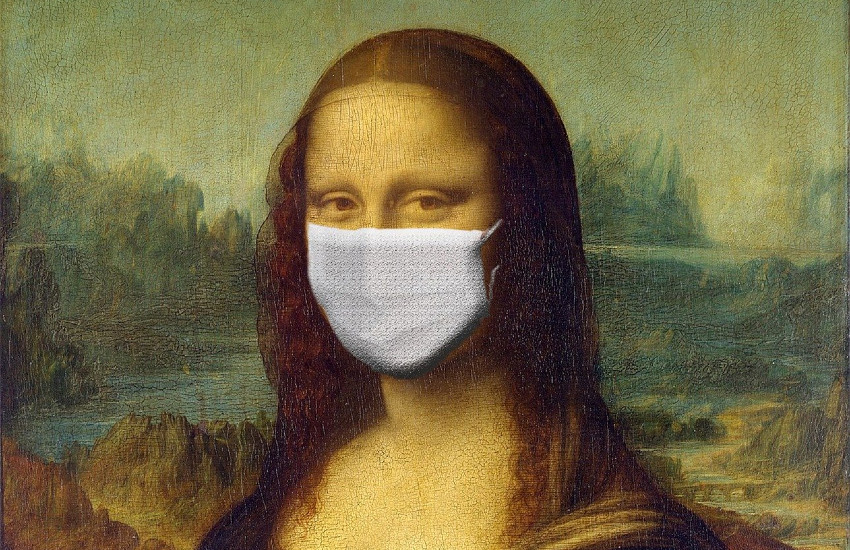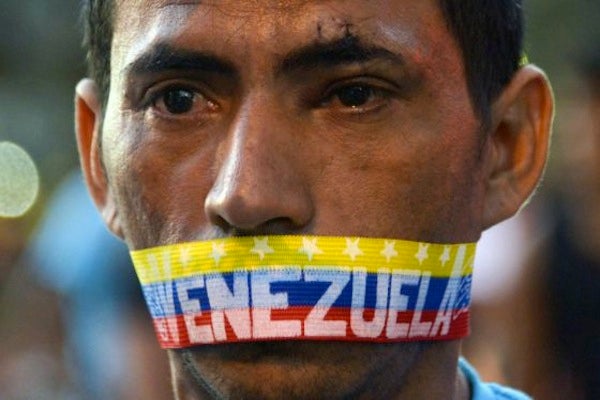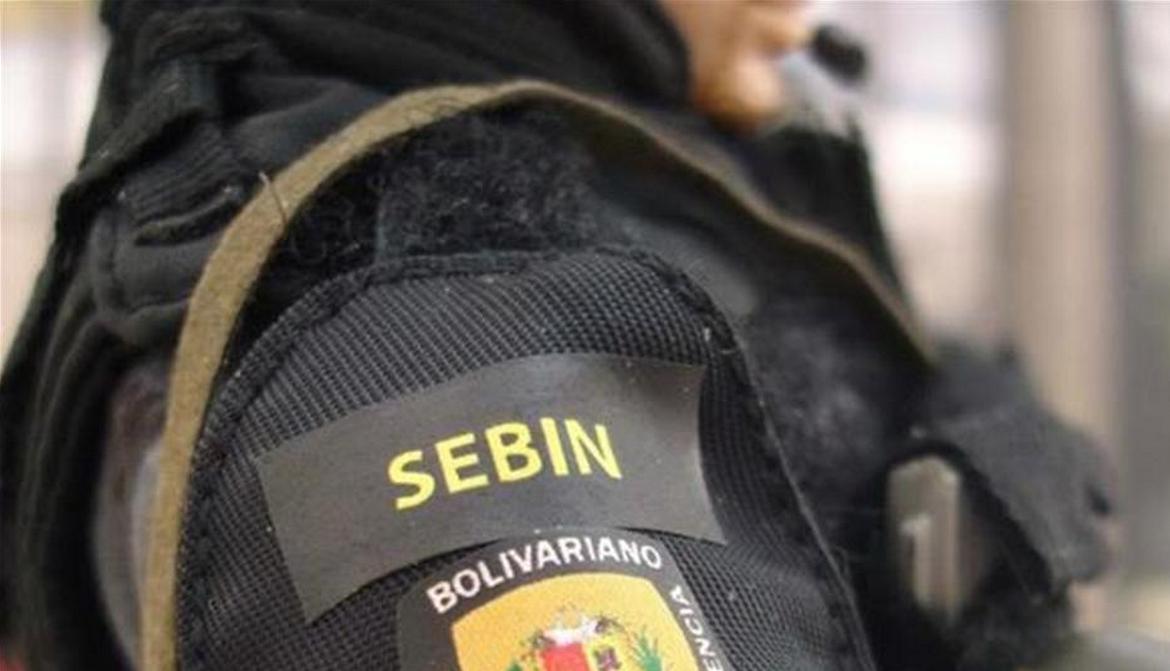On November 7, a group of local experts and victims of serious human rights violations in Venezuela analyzed the recent hearing at the ICC Appeals Chamber presented by the Venezuelan State against the decision of the Pre-Trial Chamber that authorized the resumption of the investigation into crimes against humanity committed in Venezuela. Elvira Llovera and José Gregorio Pernalete took part in the conversation in representation of the victims.
The background of the hearing
Alí Daniels, co-director of Venezuelan NGO Acceso a la Justicia, pointed out that the hearing in question had its origin in a request sent by the Venezuelan State to the Prosecutor of the International Criminal Court to apply the provisions of Article 18.1 of the Rome Statute. This article indicates that whenever a case is referred to the ICC, “the Prosecutor shall notify all States Parties and those States which, taking into account the information available, would normally exercise jurisdiction over the crimes concerned.” The Venezuelan State alleged that the ICC investigation was not necessary because a domestic investigation was ongoing.
However, the ICC Prosecutor stressed that it is not true that such an investigation is being conducted by the Venezuelan justice system. This led the Venezuelan State to file several requests to slow down the process, the last of which was an appeal that was discussed during the hearing that took place on November 7 and 8 before the Appeals Chamber. In this unprecedented hearing, the parties were able to present their arguments before the judges. Mr. Daniels further highlighted that the presence of the Office of Public Counsel for Victims was very positive because it was the first time that the opinions and observations of the victims were publicly expressed.
The anodyne arguments of the Venezuelan State
The three main points addressed in the hearings were whether or not the Prosecutor’s Office correctly informed the Venezuelan Government of the cases that should be investigated; the lack of a translated version of the documents submitted by the Venezuelan Government to the Prosecutor’s Office, which in Mr. Daniels’ opinion is “absolutely anodyne and without any ground”, and finally, whether it was right that the Court had not considered documents other than original police or Court records.
The Venezuelan journalist Luis Carlos Díaz clarified that these hearings are not part of an ICC trial process against Venezuelan officials. “The responsibility of the Venezuelan State or the officials [in the commission of the crimes] will not be determined at this stage.” This is an appeal introduced by the Venezuelan State in which the Prosecutor’s Office, the Office of Public Counsel for Victims and the lawyers of the Venezuelan State were able to present their arguments before the judges.
Regarding the participation of the victims, Mr. Diaz explained that they were not present to “speak into a microphone and tell their story”. Instead, the Office of Public Counsel for Victims presented what the victims, their family members and human rights defenders have repeatedly said: They have not achieved justice in Venezuela.
The journalist added that some of the sources used by the Office of the ICC Prosecutor include the reports prepared by the UN Fact-Finding Mission on Venezuela and all the information collected by the Office that shows that Venezuela does not have the will -or the ability- to prosecute crimes against humanity within the country. According to Mr. Díaz, the strategy of the Venezuelan State to delay the process involves appealing to the form rather than the substance of the process by questioning the types of documents or their translations rather than the actual commission of the crimes alleged both by the Office of the ICC prosecutor and the victims.
An unprecedented situation
For his part, expert Simón Gómez Guaimara asserted that this first part of the hearing has been of enormous value, not only for the situation in Venezuela but for international justice as a whole. ”It is an unprecedented situation because it is the first time that a public hearing is called under the figure of deferral established in article 18 of the Rome Statute, and because it suggests that the Court is preventing States from abusing their prerogative to request a deferral by the Office of the Prosecutor and the handover of the investigations and prosecutions to the concerned States. Yes, I think it is a very valuable exercise because it contributes to transparency. He added that the hearing allowed the allegations and reasons of the parties involved to be presented to the public.
Mr. Gómez added hopes that these types of mechanisms become the norm in future situations at the ICC to allow for a sort of oversight of the process when the concerned State does not act in good faith, as has been the case with Venezuela, where the process has been tried to be manipulated and delayed.
“It also contributes significantly to reclaiming the good image of the Court and helps to convey its role as an independent and impartial institution.” And even more concerning a member State like Venezuela, which tends to turn to these instances with uncredible and unfounded arguments.
The disdain of the Venezuelan State
Gómez stressed that the Appeals Chamber, as an independent and impartial body, will address these arguments and establish the truth. This preliminary stage is of great value for the victims and society in general, “given this new show of disdain on the part of the Venezuelan State in combating impunity for crimes against humanity committed in the country.” Venezuela has presented excessively formal arguments that seek to distort the nature of the process.
Gómez specified that “Venezuela was in permanent contact with the Office of the ICC Prosecutor during the preliminary examination phase; therefore, it takes us by surprise that the Venezuelan State is now suggesting that it was tricked into an investigation that the country had already been advancing.”
The victims’ voice
José Pernalete and Elvira Llovera, representatives of the Alliance of Relatives and Victims (Alfavic) and parents of Juan Pablo Pernalete, a young Venezuelan man murdered during the wave of social protests of 2017, pointed out that during all these years they have had to face a domestic justice system designed to violate human rights. “Our loved ones were murdered for demonstrating, or for the simple reason of being perceived as opposed to the Venezuelan State. We, the indirect victims of these serious human rights violations and crimes against humanity, have become the direct victims of a State that denies us justice, obstructing the due process to protect the perpetrators and creating a false image of delivering justice before the international agencies… Blatantly lying about our cases, re-victimizing us, criminalizing us, and not recognizing the attack to which our loved ones and the entire civil society were subjected in 2017,” Elvira Llovera said. She added that the Venezuelan State has failed to establish responsibilities either for the perpetrators or for the masterminds behind the crimes. “We feel violated, exhausted, and played with.”
Luis Carlos Díaz recalled that during the first day of the hearing, the representative of the Office of Public Counsel for Victims, Paolina Massidda, stated that “the position of the victims is very clear. Venezuela does not and will not investigate the crimes committed against their relatives and friends.”
For Luis Pernalete, the victims identified with this phrase because the Officer “expressed the cry of what we victims in Venezuela are currently experiencing. There is no intention or willingness to deliver justice, and this has become evident in the more than 8,900 requests sent to the International Criminal Court supporting the work of ICC Prosecutor Karam Khan in the continuation of the investigations”.
At Alfavic, “We have been witnesses and victims of a pattern of actions by the Venezuelan justice system during all these years aimed at maintaining impunity and denying us genuine justice.” Elvira Llovera de Pernalete added that the victims have faced the lack of independence of public powers, procedural delays, numerous and constant changes of prosecutors to tire them out and restart the process each time, insufficient investigations by the Public Ministry, and deficient and inadequate evidence, which cause the perpetrators to be acquitted. “They try to criminalize us and our children, blaming them for their deaths and making us believe that we must withdraw our complaints because our children were criminals, terrorists, or delinquents… This is how they tell us (…) we have witnessed an entire device (…) designed to perpetuate impunity and silence dissent and those who dare to protest.
The staging of the Venezuelan State
Mr. Daniels stressed that any lawyer knows that discrediting is a common practice among a party in a trial when all their arguments have been exhausted. Venezuela’s lawyer affirmed that the Prosecutor’s Office was in chaos and said that the conduct of this instance was unprofessional. The co-director of Acceso a la Justicia compared this conduct with the formal, technical, and grounded-in-law position on the part of the representatives of the Office of the ICC Prosecutor, who refrained from expressing any kind of discredit. “The human touch was given by Paolina Massidda when she spoke on behalf of the victims and those who are often forgotten: the families and friends of the victims.” According to Mr. Gómez, the excessive formalism of the Venezuelan State during the hearing was a staging that simply sought to make use of their time.
The Quest for Justice
People in Venezuela wish for Justice but according to Mr. Gómez, the first two hours of the hearing were wasted in a discussion about the translation of the documents “when the real problem is whether Venezuela is interested in showing that it has the intention to investigate, determine and punish the perpetrators of the crimes; In that case, the Venezuelan State must provide the evidence and present to the Court the record of the criminal investigation.
In representation of the victims, Elvira Llovera de Pernalete concludes by emphasizing that the Venezuelan State will seek to continue delaying the process and playing with the victims, “but the victims trust in international justice and ask the International Criminal Court for a swift process be expeditious that allow us to see justice served in the course of our lives”.
Translated by Jose Rafael Medina




